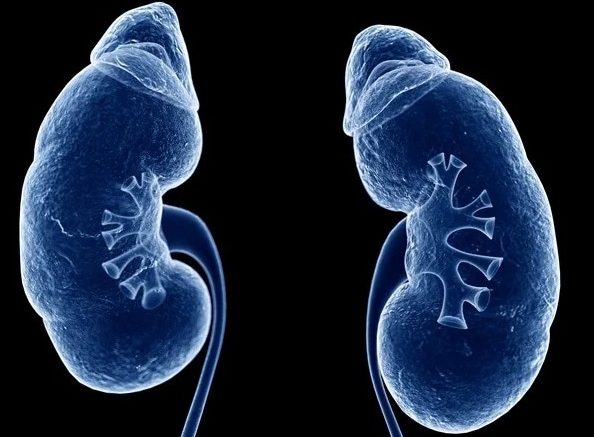According to a study, climate change will result in an increase in kidney stones.
According to a new study by researchers at Children’s Hospital of Philadelphia, rising temperatures due to climate change would lead to an increase in the incidence of kidney stones over the next seven decades, even if efforts to minimize greenhouse gas emissions are put in place (CHOP).
According to data from South Carolina, the increase will be greater if no action is taken, but there will be an increase even if mitigation measures are adopted, costing the state’s healthcare system around $57 million in the latter case and $99 million if nothing is done. Scientific Reports published the findings today.
“While it is impossible to predict with certainty how future policies will slow or hasten greenhouse gas emissions and anthropogenic climate change, and to know exactly what future daily temperatures will be,” said Gregory E. Tasian, MD, MSc, MSCE, an attending pediatric urologist in the Division of Urology at Children’s Hospital of Philadelphia.
Kidney stone disease is a painful ailment caused by hard mineral deposits that form in concentrated urine and cause discomfort when passed through the urinary tract. In the last 20 years, the prevalence of the disease has risen, especially among women and teenagers. Prior research has shown that high ambient temperatures increase the chance of developing kidney stone disease; in the United States, the incidence of kidney stones increases from north to south, and the probability of kidney stone presentations increases rapidly after hot days. Previous research, on the other hand, has not accurately predicted how climate change will affect the burden of kidney stone disease in the future.
In order to do so, researchers developed a model to predict the impact of heat on future kidney stone manifestations in South Carolina. South Carolina was chosen as a model state because it is located in the “kidney stone belt” of the United States, a region in the Southeastern United States with a higher incidence of kidney stone disease; the state also uses an all-payer claims database, allowing researchers to capture stone diagnoses across the population regardless of payer status.
From 1997 to 2014, the researchers looked at the connection between historic daily statewide mean temperatures and kidney stone presentations in South Carolina. Wet-bulb temperatures (WBT), a moist heat meter that accounts for both ambient heat and humidity and is a more accurate temperature metric for predicting kidney stones, were utilized by the researchers. They then utilized that information to anticipate the number of kidney stones caused by heat and the costs associated with them until 2089, based on projected daily WBT under two climate change scenarios.
From now to 2100, the first climate change scenario (RCP 4.5) predicts a “intermediate” future, with moves to lower-emissions energy sources, the application of carbon capture technology, CO2 emission pricing, and the development of forest areas. The second scenario (RCP 8.5) depicts a future in which greenhouse gas emissions are mostly unrestricted. From 2010 to 2014 through 2085-2089, RCP 4.5 predicts a 2.3°C increase in mean temperature per 5-year period, whereas RCP 8.5 predicts a 3.6°C increase.
The researchers calculated that kidney stones caused by heat will increase statewide by 2.2 per cent in the “middle” scenario of RCP 4.5 by 2089, and by 3.9 per cent in RCP 8.5. The researchers estimated that between 2025 and 2089, the overall cost related to these additional kidney stones would be $56.6 million for RCP 4.5 and $99.4 million for RCP 8.5, based on a baseline average cost per patient of more than $9,000.
“Our analysis is a model to conceptualize how the burden of kidney stone disease is expected to progress with climate change, as well as how mitigations to greenhouse gas emissions can offset some of this burden,” said first author Jason Kaufman, a fourth-year medical student at the Perelman School of Medicine at the University of Pennsylvania.
“We don’t often talk about the impact of climate change on human health, especially when it comes to children,” Tasian said, “but a warming globe will have major implications on human health.” “As pediatric experts, we have a responsibility to investigate the impact of climate change on human health, because today’s children will face this reality in the future.”






buy cytotec online https://cytotec.icu/ cytotec pills buy online
I am extremely impressed along with your writing abilities as well as with the layout
for your weblog. Is this a paid topic or did you modify it your self?
Anyway keep up the excellent quality writing, it is uncommon to look a great blog
like this one today..
Very nice article, just what I was looking for.
Greetings from Carolina! I’m bored at work so I decided to
browse your site on my iphone during lunch break.
I enjoy the info you provide here and can’t wait to take a look when I get home.
I’m surprised at how quick your blog loaded on my phone ..
I’m not even using WIFI, just 3G .. Anyways, very good blog!
Thanks for sharing such a nice thought, post is pleasant,
thats why i have read it entirely
Its like you read my mind! You appear to know so much about this, like you wrote the book in it
or something. I think that you can do with some pics
to drive the message home a bit, but other than that, this is magnificent blog.
A fantastic read. I’ll certainly be back.
I’m curious to find out what blog system you are utilizing?
I’m having some small security issues with my latest website
and I would like to find something more
safeguarded. Do you have any suggestions?
Wonderful beat ! I would like to apprentice while
you amend your site, how could i subscribe for a blog website?
The account aided me a acceptable deal. I had
been a little bit familiar of this your broadcast provided
vibrant transparent idea
Heya i am for the first time here. I came across this board and I to find It truly helpful
& it helped me out much. I hope to present one thing back and
aid others like you aided me.
Hello, i think that i saw you visited my site so i came to “return the favor”.I’m trying to find things to improve my website!I suppose its ok to use some of
your ideas!!
Great web site you have got here.. It’s hard to find high-quality writing like yours these days.
I seriously appreciate people like you! Take care!!
Wow that was strange. I just wrote an extremely long comment but after I clicked submit my comment didn’t show up.
Grrrr… well I’m not writing all that over again. Regardless, just wanted to say excellent blog!
bookmarked!!, I like your site!
Hi there, i read your blog from time to time and
i own a similar one and i was just wondering if you get a lot of spam remarks?
If so how do you reduce it, any plugin or anything you can advise?
I get so much lately it’s driving me insane so
any support is very much appreciated.
I like the helpful information you supply to your articles.
I will bookmark your blog and test again here frequently.
I am fairly sure I will be told plenty of new stuff right here!
Good luck for the next!
Some genuinely good content on this website , regards for contribution.
I really enjoy reading through on this site, it contains superb blog posts.
Hey, you used to write wonderful, but the last several posts have been kinda boring… I miss your super writings. Past few posts are just a bit out of track! come on!
I am impressed with this site, rattling I am a fan.
Hello! I could have sworn I’ve been to this blog before but after browsing through some of the post I realized it’s new to me. Anyways, I’m definitely happy I found it and I’ll be book-marking and checking back frequently!
I have read so many posts regarding the blogger lovers
except this article is really a good article, keep it up.
This is very interesting, You’re a very skilled blogger.
I’ve joined your feed and look forward to seeking more of your
great post. Also, I have shared your website in my social networks!
Hey there! I know this is kinda off topic however
I’d figured I’d ask. Would you be interested in exchanging links or maybe guest
authoring a blog article or vice-versa? My site covers a lot
of the same subjects as yours and I believe we
could greatly benefit from each other. If you are interested feel free to shoot me an e-mail.
I look forward to hearing from you! Fantastic blog by the way!
Saved as a favorite, I love your site!
Some truly wondrous work on behalf of the owner of this web site, utterly outstanding subject matter.
It’s remarkable to go to see this web page and reading
the views of all friends concerning this paragraph, while I am also eager of
getting experience.
Yeah bookmaking this wasn’t a speculative decision great post! .
Thank you for the sensible critique. Me & my neighbor were just preparing to do a little research about this. We got a grab a book from our area library but I think I learned more from this post. I’m very glad to see such wonderful info being shared freely out there.
Spot on with this write-up, I truly assume this web site needs far more consideration. I’ll most likely be once more to learn far more, thanks for that info.
Saved as a favorite, I really like your blog!
You are a very capable person!
I loved as much as you will receive carried out right here. The sketch is attractive, your authored material stylish. nonetheless, you command get bought an impatience over that you wish be delivering the following. unwell unquestionably come more formerly again as exactly the same nearly very often inside case you shield this hike.
Nice post. I be taught something more difficult on different blogs everyday. It should all the time be stimulating to learn content from different writers and apply a little bit one thing from their store. I’d favor to make use of some with the content on my weblog whether or not you don’t mind. Natually I’ll provide you with a link on your net blog. Thanks for sharing.
hello!,I love your writing very a lot! share we keep in touch extra about your post on AOL? I require an expert on this space to unravel my problem. May be that’s you! Having a look forward to see you.
Very great post. I simply stumbled upon your blog and wished to mention that I have truly loved browsing your blog posts. In any case I will be subscribing for your rss feed and I’m hoping you write once more very soon!
I like this post, enjoyed this one thank you for putting up. “What is a thousand years Time is short for one who thinks, endless for one who yearns.” by Alain.
Wow! Thank you! I always wanted to write on my website something like that. Can I include a portion of your post to my blog?
latobet88 latobet88 latobet88
I really like what you guys are usually up too. Such clever
work and exposure! Keep up the wonderful works guys I’ve included
you guys to blogroll.
shinigami id shinigami id shinigami
id shinigami id
you’re really a excellent webmaster. The website loading speed is
amazing. It seems that you are doing any distinctive trick.
Also, The contents are masterpiece. you’ve performed a wonderful activity
on this matter!
sambal toto sambal toto sambal toto
You should take part in a contest for one of the finest websites on the web.
I most certainly will recommend this web site!
rafi777 rafi777 rafi777
Excellent way of telling, and pleasant article to get data regarding my presentation focus, which i am going
to convey in academy.
Профессиональный сервисный центр по ремонту бытовой техники с выездом на дом.
Мы предлагаем: сервис центры бытовой техники москва
Наши мастера оперативно устранят неисправности вашего устройства в сервисе или с выездом на дом!
I’d like to find out more? I’d love to find out some additional information.
Howdy would you mind sharing which blog platform you’re using?
I’m looking to start my own blog soon but I’m having a hard time making a decision between BlogEngine/Wordpress/B2evolution and Drupal.
The reason I ask is because your layout seems different then most blogs and I’m looking for something
unique. P.S Apologies for getting
off-topic but I had to ask!
Thank you for any other informative website. Where else could I get that type of information written in such an ideal means?
I’ve a project that I am simply now operating on, and I have been at the glance out for such information.